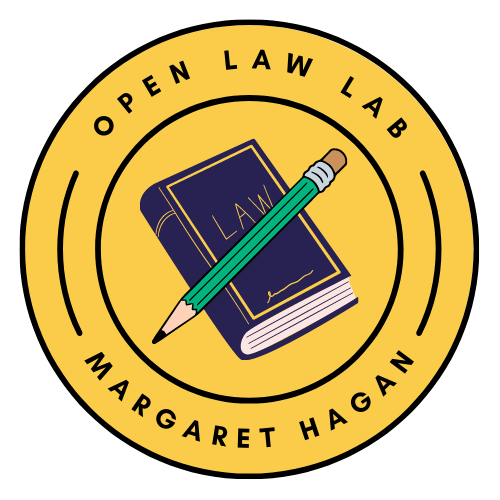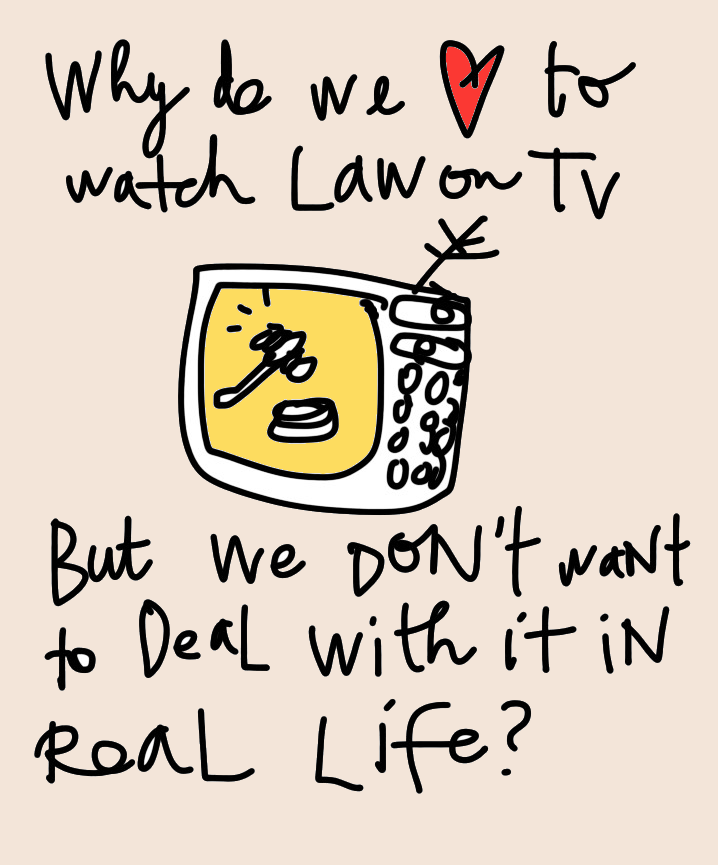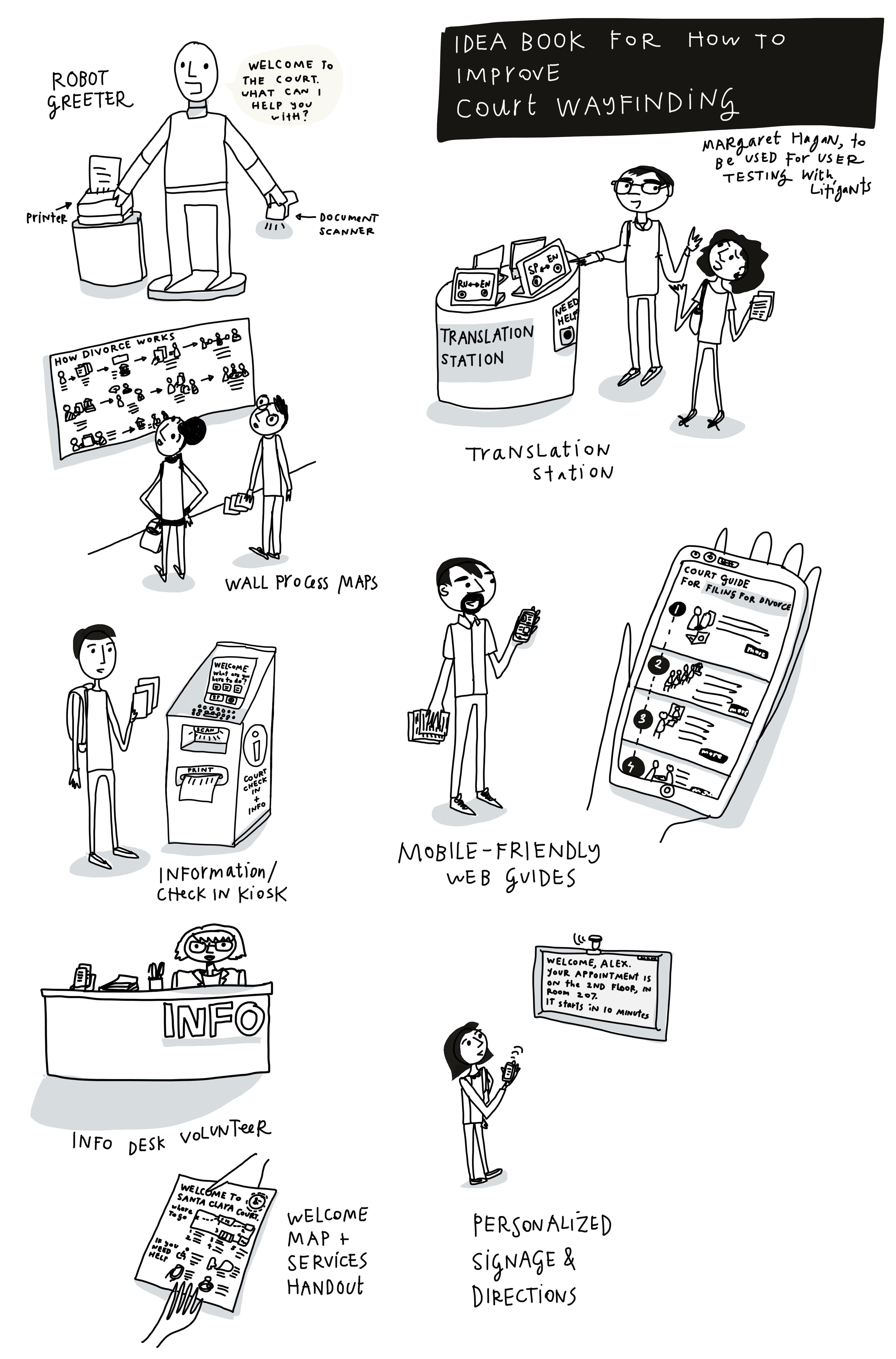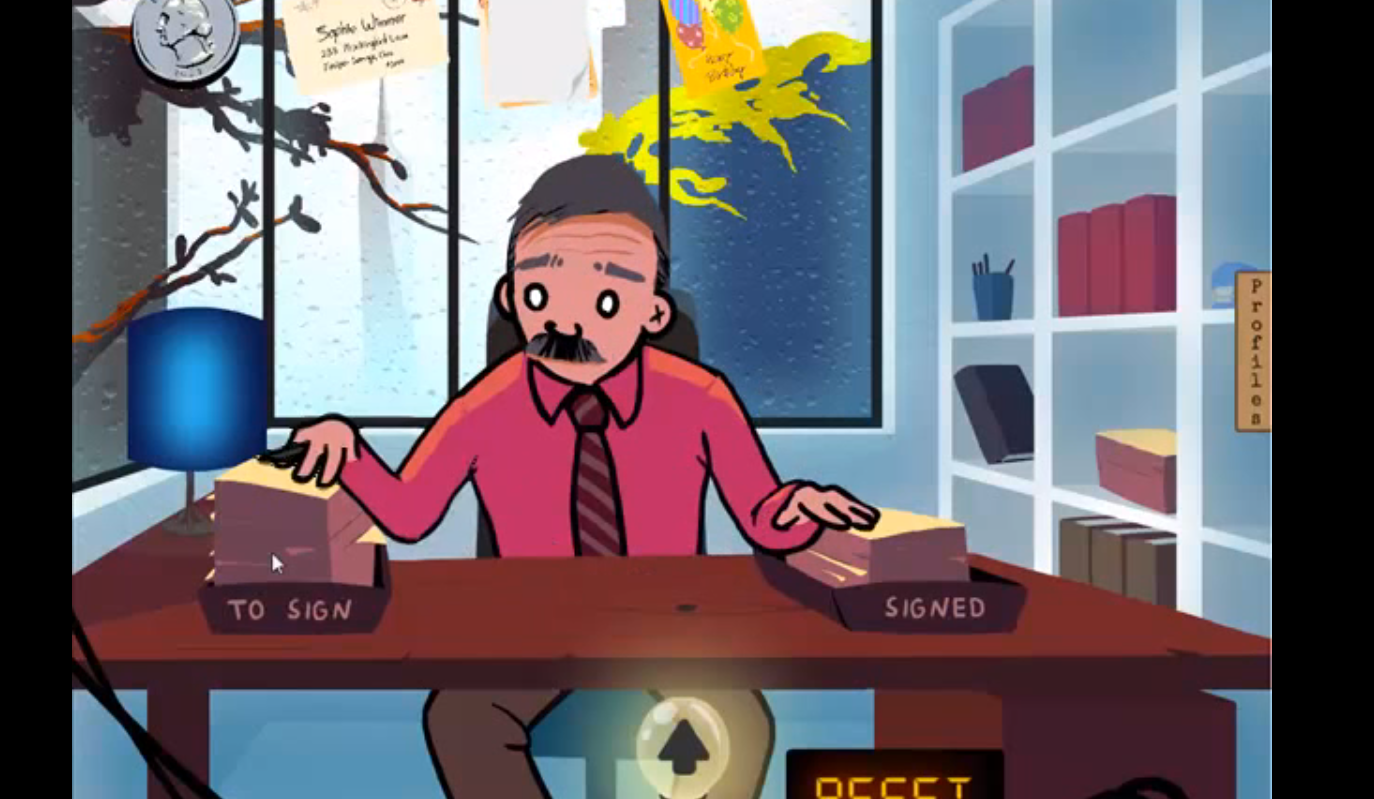I have been writing up my findings from a recent research study I did, on how lay people use the Internet to respond to legal problems that crop up in their lives. I’m doing this as part of a longer design research inquiry, to develop best practices, guiding standards, and new models for online legal help resources.
One section of my research was asking my participants about their relationship with law. My intention was to find what the mental model & frameworks are in play, when they interpret their legal problem into an Internet search query, and as they sift through possible resources and decide which (if any) to trust and use.
In this block of questions, I asked participants to rank their general interest in learning more law, and to explain their response. I’ve been slightly surprised by how high one camp of people’s self-professed interest in learning law have been. One distinct group of respondents expressed an interest akin to:
‘I always thought I would have enjoyed going to law school, but I didn’t go’,
‘I want to understand the rules that apply to me and be prepared for situations that might come up’.
‘Law is really interesting, and I’m curious to know more.’
This is opposed to the other distinct (but much smaller) group of respondents who declare a firm disinterest in anything law. This type of participant declared with certainty,
‘I don’t like law,’
‘I have no interest in law or anything about it,’ or
‘Doesn’t mean much to me.’
What I’m interested in is the potential to tap into the first group’s self-professed curiosity, if not fascination, with the legal system. Even if most of them ranked their opinion of lawyers very low, they ranked their opinion of the legal system much higher. They don’t want to be lawyers, but they want to be smart in this area & have an appetite for learning more. Some people tied their interest in law directly to a wish to be able to solve their own future legal problems, but many professed a general curiosity.
This leads me to hypothesize that there is a Law-as-Entertainment mental model for legal help resources to be tapping into. For the users who are curious about learning more law, they also love consuming legal shows. When I asked the participants where they had learned law from, television was the number two source of legal information that people identified (just behind the Internet). The interested-in-law group is consuming lots of fictional legal narratives on tv (if not also podcasts now…).
So my question becomes: How could we design legal help sites that tap into this one user group’s mixture of love of legal narratives, plus legal curiosity & appetite to be ‘law smart’?
Our current model of self-help, government, and even for-profit legal sites tend to take a ‘Reference Book’ as their model. List out all the resources, let people browse or search their way to the right topic, and then tell them lots of information on this topic through text descriptions. It is like looking into an encyclopedia or dictionary.
Could we remix this very dry experience — or just reframe it with subtle cues, phrasings, imagery, and interactions — to tap into more positive and rich mental models? If people enjoy watching legal procedurals and dramas so much, can we borrow some elements from them to make online legal resources more engaging?
I’m not thinking full-blown dramatic narratives or character development. But can we use more subtle & resource-light ways to make legal info resources more engaging? Some ideas:
- Putting more faces, images, and visuals along with the text
- Instead of having point by point descriptions of legal procedures, have annotated storyboards
- Give sample, fictionalized anecdote versions of the legal info alongside the very functional, practical run-downs of info
- Have interactive, game-like paths through the information, revealing it selectively & responsively, rather than all at once
- Group info into a kind of narrative arc: that about the background context, about the conflict, and about resolution, mimicking a standard storyline arc, and give the user the motivation to carry through this storyline themselves
- Make Goofus/Gallant examples for legal procedure — how a person ideally would follow the procedure, versus a less-than-ideal path (what you could do wrong, how you could fall into common mistakes)
This is an initial brainstorm, possible directions with which to change or supplement the Reference Book model of legal resources. Have you seen any good models in this direction, or do you have any ideas along this line?




1 Comment
[…] At Open Law Lab, Margaret Hagan asks if we can use TV-law-love to improve real-life legal services. […]